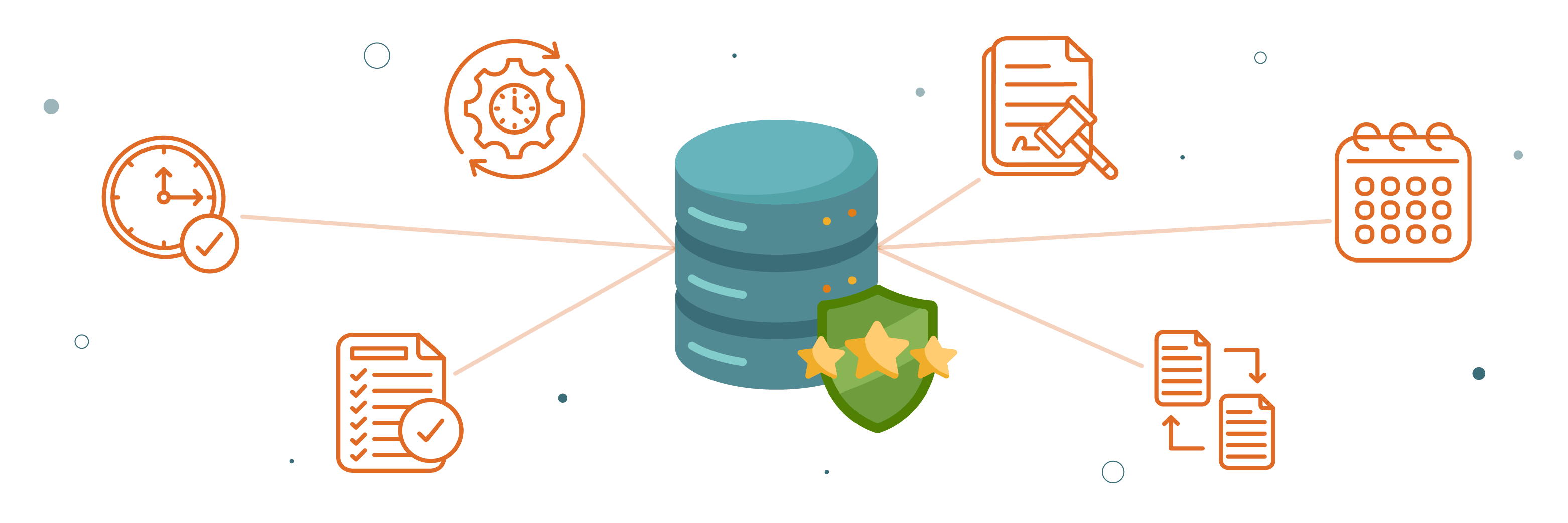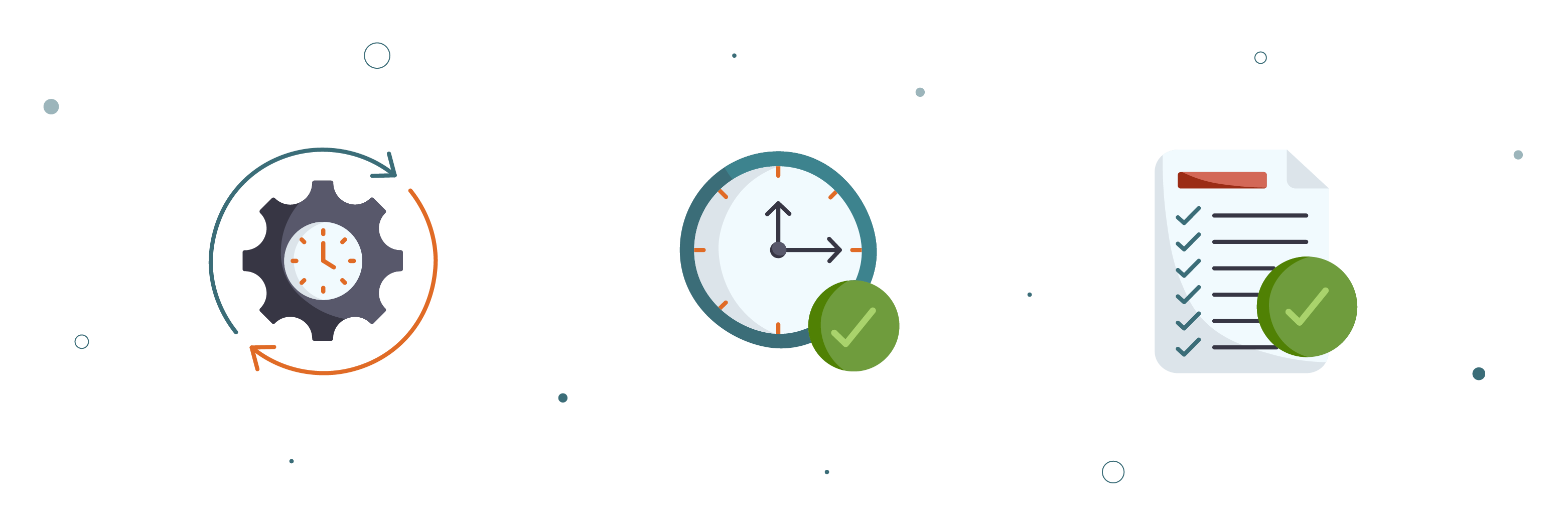The importance of data quality cannot be overstated. Adhering to the six dimensions of data quality
is essential for any organization aiming to maintain high standards and reliability in their data.
Data plays a vital role in today’s business world. It’s essential to ensure that this data is well-organized and continuously improved in quality.
Data quality refers to the condition of your data. It ensures that your organization's data is relevant and beneficial for achieving your objectives. Additionally, it aids in the identification and correction of errors in databases.
Reliable and trustworthy data holds tremendous value, as only accurate and consistent data enables informed decision-making. Therefore, investing in maintaining the quality of your data is crucial. Poor data quality can lead to errors and customer loss, while high data quality enhances the level of service.
Data quality refers to the state of data, assessed by various factors such as accuracy, completeness, consistency, validity, uniqueness, and timeliness. In simple terms, high data quality signifies that the data is dependable, error-free, and suitable for its intended purpose.

It’s essential to ensure high-quality data for success. Good data quality leads to better decision-making, higher efficiency, and lower costs. It also prevents errors, waste, and customer loss. Lack of quality can damage an organization's revenue and reputation.
According to IBM, the annual cost of data quality problems in the U.S. is as high as $3.1 trillion. Additionally, MIT Sloan found that dealing with the consequences of poor data costs a company about 15% to 25% of annual revenue. In summary, investing in data quality keeps your organization healthy and competitive.

Data quality is crucial for organizations that rely on data. Accurate and reliable data is valuable because it enables informed decision-making.
Take advantage of our free checklist to evaluate whether your organization fulfills the 6 critical data quality dimensions.
Earlier, we briefly described the six dimensions of data quality. An organization must meet the following six dimensions for good data quality:
Consistency refers to the matching or linking of data values from different databases. Customers' data should be consistent across all platforms if they are present in multiple systems.
The Central Criminal Records Office, also known as Justitiële Informatiedienst (Justid) in the Netherlands, provides a great example of how to handle this. Justid determines a person's sentence by reviewing their criminal history through the Criminal Records System (JDS). They use fuzzy logic techniques from Human Inference to detect and correct inconsistencies in the data from different sources, thus providing an accurate and consistent picture.
Are you interested in how this works? Learn more about how Human Inference enhances the process at Justid.
Accuracy is about having correct and exact data. A measured value must match the actual value and be free of errors. This ensures, for example, that an address is accurate so that mail reaches the correct destination.
At Justid, Human Inference's software ensures the accurate identification and analysis of criminal data, which is crucial for determining appropriate punishments and measures.
Completeness refers to the dataset having no missing or incomplete values, ensuring that all necessary data, such as name, address, and contact information, is present.
A great example is Stichting BKR, which uses DataHub software to create a comprehensive file for each borrower. This is essential for credit providers to make well-informed credit decisions and comply with legal requirements.
Are you interested in learning about the review process? Discover all the details and how Stichting BKR offers insights into the borrower file.

Validity refers to the requirement for data to adhere to established rules and formats. For example, a date of birth must be in a valid format, such as DD-MM-YYYY.
Valid data is essential for organizations like the Dutch tax office Belastingdienst. The DataPlatform software ensures that all received data is thoroughly and fault-tolerantly checked and verified against existing records, resulting in correct, unique, and valid relationship data.
The term "uniqueness" in a dataset refers to the absence of repeated data. This means there are no duplicate entries, and each customer should be represented only once in the database.
Duplicates can negatively impact analyses and result in inefficiencies. Having duplicate customer records can also lead to confusion in customer interactions. Regular deduplication processes and unique identifiers can help improve this issue.
Timeliness means that data is available, accurate, and updated as often as necessary to ensure that it is current. At Stichting BKR, DataHub guarantees up-to-date information, enabling credit providers to access the most recent data when consistently evaluating creditworthiness.

Poor data quality comes with high costs, both financial and operational. Some examples of the impact of poor data quality include:
The Dutch tax office Belastingdienst is a prime example of how high-quality data prevents unnecessary costs. Our DataPlatform software ensures efficient and accurate tax return processing, minimizing errors and associated expenses.
Improving data quality can be challenging, but maintaining data quality can be achieved through several methods. Here are three key steps:

This article underscored the importance of data quality and its six dimensions: accuracy, completeness, consistency, validity, uniqueness, and timeliness. We demonstrated how these dimensions collectively define data quality and how vital it is for the success of any organization.
Poor data quality can result in errors, inefficiencies, potential damage to reputation, or even fines. On the other hand, good data quality forms the basis for enhanced decision-making, improved efficiency, cost reduction, and satisfied customers. Justid, Stichting BKR, and the Dutch tax office Belastingdienst exemplify how a targeted approach and the right tools can ensure superior data quality.

Take charge of your data quality. Contact us today to discuss your needs and learn how we can help you reach your goals.
Are you struggling to manage the vast amount of data your business collects? With stricter regulations, managing your information effectively is more critical than ever. Luckily, a software solution can help: Master Data Management (MDM).
Don't hesitate to contact us to schedule a brief introductory meeting on how MDM can help your business succeed. Without any other commitments, but with helpful guidance.
Poor data quality costs organizations hundreds of thousands of euros per year. Unreliable data leads to incorrect decisions and inefficient processes.
Fortunately, our data quality checklist allows you to assess in just 5 minutes whether your data meets the 6 data quality dimensions. Please leave your details to download the document instantly.
A robust compliance process is crucial for safeguarding your organization against potential risks. Our team of experts is here to provide you with personalized guidance and the necessary tools to create a future-ready compliance policy, including CDD.
Fill out your details below, and let’s schedule a brief introductory meeting. There’s no obligation—just valuable insights tailored to your needs.